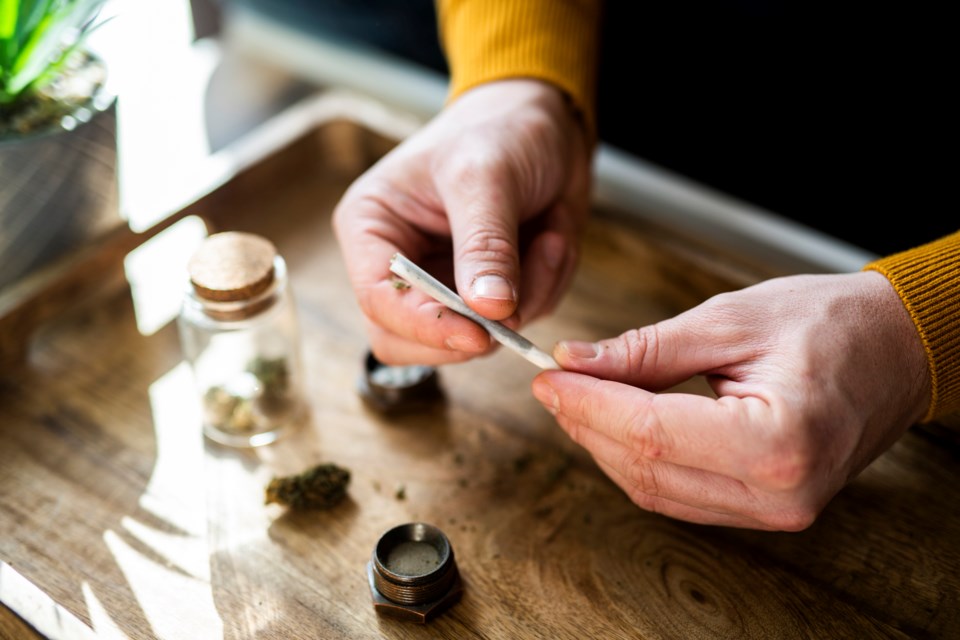Canada recently observed the fifth anniversary of the legalization of marijuana. When Research Co. and Glacier Media asked the country’s residents about the current state of affairs, almost two-thirds (64 per cent, unchanged since 2022) agree with cannabis being legal in Canada, while just over three in ten (31 per cent, up one point) disagree and six per cent (up one point) are undecided.
Agreement with legal marijuana is highest in Atlantic Canada (72 per cent), followed by Quebec (68 per cent), Saskatchewan and Manitoba (63 per cent), Ontario (61 per cent), British Columbia (58 per cent) and Alberta (also 58 per cent).
The legalization of cannabis was a major policy announcement from the Liberal Party in the 2015 federal election campaign. The decision remains popular among Liberals and New Democratic Party (NDP) voters in 2021 (68 per cent and 74 per cent respectively). Among Conservative Party supporters, agreement drops to 54 per cent.
In this year’s survey, the appetite for legalizing other drugs remains negligible.
Only one in ten Canadians believe heroin (10 per cent, unchanged) and crack cocaine (also 10 per cent, up two points) should be readily available in the same fashion as marijuana.
The proportions are slightly higher for ecstasy (12 per cent, up two points) and powder cocaine (also 12 per cent, up two points), and slightly lower for methamphetamine (nine per cent, up one point) and fentanyl (also nine per cent, up one point).
Legalization has impacted the habits of some residents. More than half of Canadians (53 per cent) told us that they have never consumed marijuana in Canada. A third (33 per cent) tried it before it was legal, while 13 per cent only acquired it after legalization.
Legal cannabis sales are particularly attractive for Canadians aged 18-34. Almost one in four of them (23 per cent) only tried marijuana after it became legal, compared to 16 per cent among their counterparts aged 35-54 and just six per cent among those aged 55 and over.
A look at the ethnic background of respondents provides a window into the past and present use of marijuana. Canadians of Indigenous and European descent are more likely to have consumed it before legalization (55 per cent and 39 per cent respectively). The numbers are drastically lower for those of East Asian and South Asian heritage (16 per cent and 13 per cent respectively).
The privatization model was supposed to bring an end to the informal sales of cannabis. When we asked Canadians about the marijuana they have consumed since legalization, fewer than half (48 per cent, unchanged) acknowledge that all of it was acquired at a legal retailer.
This year, Canadians aged 35-54 are more likely to say that all of their product was obtained at a legal retailer (55 per cent) than those aged 18-34 (45 per cent) and those aged 55 and over (43 per cent).
There are some regional nuances that suggest the process has not been smooth all over the country. Saskatchewan and Manitoba (56 per cent), Alberta (55 per cent) and Atlantic Canada (54 per cent) are the only regions where a majority of residents claim that all of their marijuana was acquired at a legal retailer. The proportions are lower in Ontario (49 per cent), Quebec (45 per cent) and British Columbia (38 per cent).
In some countries, including the United States, a company can administer “drug tests” to employees, even if they do not operate machinery (such as pilots, truck drivers or crane operators). In 2023, a majority of Canadians (58 per cent, down two points) remain in favour of companies in Canada being able to test any employee now that marijuana is legal. One-third (33 per cent, up two points) are opposed to this course of action.
Finally, we arrive at the complex issue of pardons. In Canada, an expungement order compels police forces, federal departments or agencies to destroy or remove any judicial record of a conviction.
Almost seven in ten Canadians (69 per cent, up five points) agree with the federal government providing expungement orders to people convicted of simple possession of marijuana (defined as possession for personal use with no intent to traffic).
Relying on expungement orders for simple possession of marijuana is most popular among NDP voters (82 per cent), followed by Liberals (74 per cent) and Conservatives (65 per cent).
Even if marijuana legalization appears to be a settled issue, we may still see it featured on the federal campaign trail in 2025.
Canadians of East Asian descent are the least likely to agree with marijuana being legal (47 per cent) and the most likely to have not consumed cannabis in Canada (71 per cent). Our survey also shows that 31 per cent of Conservative voters in 2012 and 28 per cent of Canadians of East Asian descent reject pardons for marijuana convictions.
We can expect discussions about drug use – legal or not – during federal Conservative Leader Pierre Poilievre’s campaign appearances in Richmond.
Results are based on an online study conducted on October 11 to October 13, 2023, among 1,000 adults in Canada. The data has been statistically weighted according to Canadian census figures for age, gender and region in Canada. The margin of error, which measures sample variability, is plus or minus 3.1 percentage points, 19 times out of 20.
Mario Canseco is the president of Research Co.



